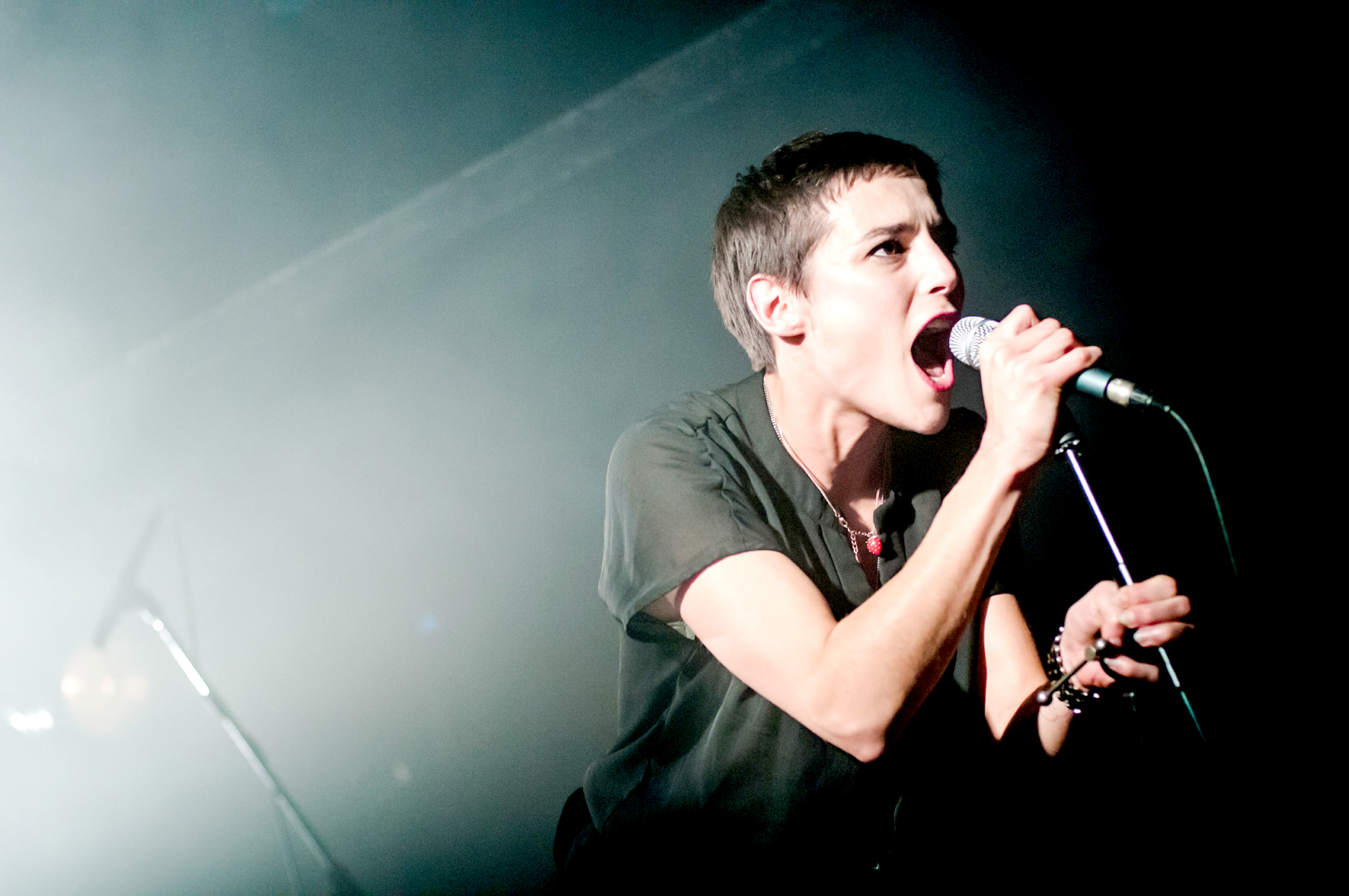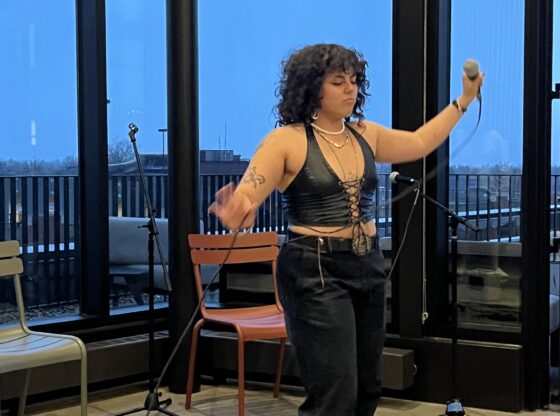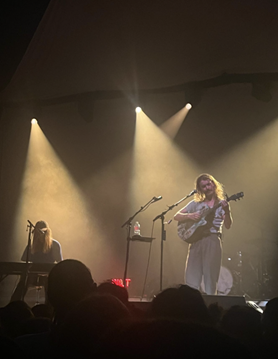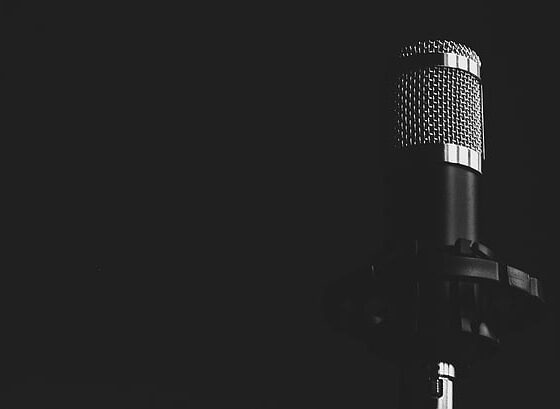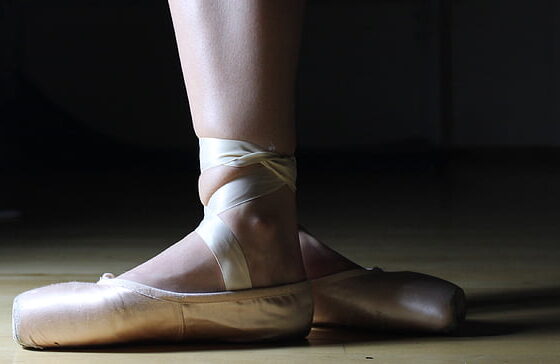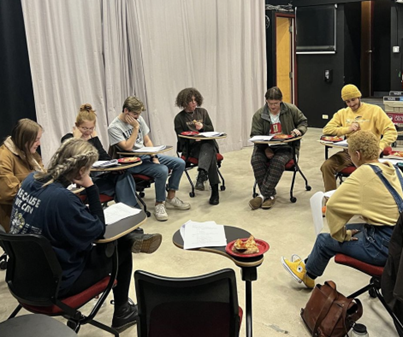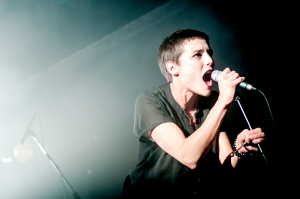
Although Coachella draws its fair share of scantily clad feather-wearers, indie rock is still very much a boy’s club, and aside from the rowdier Karen O or Emily Haines, it’s usually the more traditionally winsome women who receive the acclaim (Tegan & Sara, Beth Cosentino and Grimes all come to mind). This may be why the debut LP, Silence Yourself, from all-female post-punk outfit Savages is so uniquely satisfying—it’s a hard-hitting, razor-sharp 40 minutes of guitar, drums and bass that stands as not only one of the most outstanding recent efforts from an all-women group, but one of the best rock albums of the year, period.
From the moment Silence Yourself begins, what’s immediately striking is how wonderfully straightforward and traditional these songs feel. On each track, you get a solid guitar riff, a pounding rhythm section and some dramatic and fierce vocals from lead singer Jehnny Beth. There’s not a synth in sight, and aside from a surprisingly effective use of piano and clarinet on the album’s closer, Savages sticks to this formula.
And wow, does the band do it well. When the guitar takes the lead (as it does on opener “Shut Up” and mid-album track “She Will”), it immediately and dramatically commands attention. When the bass guitar jumps out front (as on “City’s Full”), it propels the song forward with a dark, thick energy. And the drum tracks (most notably on “I Am Here”) are both intricate and catchy. Silence Yourself is the work of an exceedingly tight band, and the overall experience of this record is not unlike seeing a live performance from an extremely well-trained group of musicians. There’s not a loose end or round corner on the album, and Savages deserves a lot of credit for making such a tightly wound set of music project such an aggressive live energy.
To some, Savages’ brutally traditional post-punk approach might make the album feel monochromatic. And in some ways, this is a valid criticism—it absolutely takes a few listens for these songs to really feel distinct. And for its part, Savages is hardly the kind of band to pander with a huge chorus or instrumental novelty.
The real pleasure in this record, then, is as much a result of its little instrumental intricacies as the adrenaline coursing through its veins. The heart-pounding four-on-the-floor conclusion to “Shut Up,” or the expansive combination of sixteenth-note drums and guitar effects on “She Will” might not blow you away when you first hear them, but on repeated listens they stand as some of the more impressive moments on the record.
Beth’s lyrics are also rather intriguing once you look deeper than her generally biting (and effective) delivery. “No Face,” for example, is a fierce indictment of those who eschew having a clear personality: “Different shapes, on your face / Which one is your true self?” Later on in the album, the two-track punch of “Hit Me” and “Husbands” work in tandem to paint a bold and dark picture of male dominance and feminine resistance—on the former, Beth chillingly states “I took a beating tonight / And that was the best I ever had,” while on the latter, she exclaims: “Oh God, I wanna get rid of it / My house, my bed, my husbands.” Lines like these make Beth’s vocals work on an intellectual as well as a visceral level, and they are well worth returning to.
The only real downsides to Silence Yourself occur when Savages’ well-worn formula falls a little flat. Two tracks relatively early on in the record, “Strife” and “Waiting for a Sign,” are also two of the slowest cuts, and fail to hit the propulsive highs of the songs surrounding them. What’s more, they also feel a little too bleak for their own good—Savages generally does a good job with its gothic sheen, but when the tempos drop, the songs feel a little miserable. The slow-burning closer “Marshal Dear,” while spicing up the group’s approach with its use of piano and clarinet, also feels a little too dreary, though it still rounds out the album decently enough.
The best this album has to offer, then, occurs when Savages combines tight instrumentals, pulse-pounding energy and dramatic vocals for a mix that manages to be unique even as it clearly stays within the confines of a genre. And lucky enough for the listener, this relatively young group has already found an approach that works, as well as the sense to stick with it. Noble Savages indeed.

